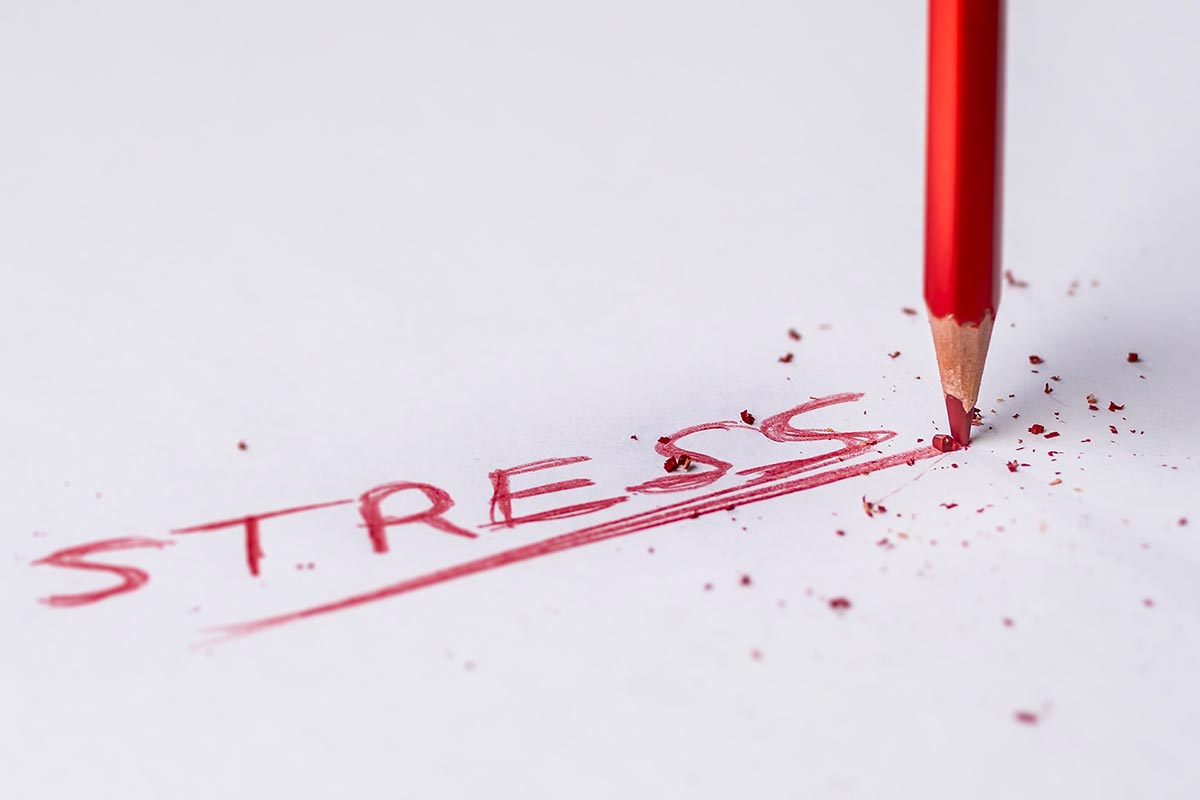Bills, debt, traffic, jobs, deadlines, family—the list of stressors in our modern world seems endless. Stress is an unavoidable part of life, yet how we choose to manage it can significantly affect our physical and mental well-being. A saying I once heard encapsulates this perfectly: "Stress is like a rocking chair; it keeps you occupied but doesn’t get you anywhere." This adage serves as a reminder of the futility of unchecked stress and the importance of finding constructive ways to manage it.
Understanding Stress
Stress is defined as a state of mental or emotional strain or tension resulting from adverse or demanding circumstances. Its manifestations can vary widely, from headaches, irritability, and muscular tension to more severe issues such as anxiety, depression, increased heart rate, and high blood pressure.
Chronic stress doesn't just affect your mood—it can wreak havoc on your body. Prolonged exposure to stress has been linked to a host of health problems, including heart disease, hypertension, weight gain, and even immune system dysfunction. It can also disrupt your sleep, reduce productivity, and make you feel constantly fatigued and irritable.
The Science Behind Stress Relief
While stress might seem insurmountable at times, there are effective ways to combat it. At the heart of many stress-relief strategies lies the power of regular exercise. Physical activity directly combats the effects of stress by releasing endorphins, often referred to as the body’s "feel-good" chemicals. These natural mood elevators not only help you feel better emotionally but also reduce the physical symptoms of stress, such as muscle tension and fatigue.
Exercise: Your Stress-Busting Ally
Engaging in regular physical activity is one of the most effective ways to reduce stress. Whether it’s weight training, yoga, running, or martial arts, exercise provides a dual benefit for both your body and mind. Here’s how:
Improved Blood Flow: Exercise increases blood circulation, delivering oxygen and nutrients to tissues more efficiently. This enhanced circulation helps your body clear out stress-induced toxins and promotes overall well-being.
Endorphin Release: Physical activity stimulates the release of endorphins, which can improve your mood, increase energy levels, and provide a natural sense of euphoria.
Boosted Confidence: Regular exercise not only improves physical fitness but also enhances self-esteem. Feeling strong and accomplished can provide a much-needed mental lift during stressful times.
Even on days when the weight of stress feels overwhelming, a short workout can make a difference. Exercise offers a sense of accomplishment, which can improve your outlook and give you the mental clarity needed to tackle challenges.
Sleep: The Unsung Hero
Stress and sleep have a cyclical relationship. Stress can disrupt sleep, and lack of sleep can amplify stress levels. Poor sleep leads to irritability, difficulty concentrating, and a weakened immune system—all of which exacerbate stress. Exercise plays a crucial role in breaking this cycle. Physical activity helps regulate your sleep-wake cycle, making it easier to fall asleep and stay asleep. It also burns off nervous energy, leaving your body and mind ready for restorative rest. By committing to regular exercise, you can create a positive feedback loop where better sleep reduces stress and improved stress management enhances sleep quality.
The Role of Nutrition
Stress often impacts eating habits, leading to poor nutrition choices or suppressed appetites. Yet, maintaining a balanced diet is critical for managing stress. Proper nutrition fuels your body with the energy and nutrients needed to combat stress effectively. Include plenty of whole foods, lean proteins, healthy fats, and fiber in your diet. Avoid excessive caffeine and sugar, as they can heighten feelings of anxiety and irritability.
Hydration is equally important. Dehydration can exacerbate stress, so aim to drink plenty of water throughout the day. Small, consistent meals can help maintain stable blood sugar levels, preventing mood swings and fatigue associated with stress.
Organization: Finding Order Amid Chaos
Clutter and procrastination often amplify stress, creating an overwhelming sense of disarray. Taking time to organize your environment and prioritize your tasks can significantly reduce stress. Start by creating a to-do list and breaking larger tasks into manageable steps. This approach helps you regain a sense of control and reduces feelings of being overwhelmed.
Consistency is key. Setting a routine not only improves productivity but also provides a sense of stability and predictability, which can be calming during chaotic times.
The Bigger Picture: Exercise and Mental Resilience
Regular exercise doesn’t just alleviate stress—it builds mental resilience. Physical activity strengthens the mind-body connection, helping you better cope with challenges. As your body grows stronger, so does your ability to face stress head-on. The act of exercising itself often serves as a metaphor for life’s challenges: pushing through discomfort to emerge stronger on the other side.
Moreover, exercise provides a healthy outlet for negative emotions. Whether it’s punching a heavy bag, hitting the pavement for a long run, or finding solace on a yoga mat, physical activity offers a constructive way to process and release pent-up stress.
Final Thoughts
Stress is an inevitable part of life, but it doesn’t have to define it. By incorporating regular exercise, prioritizing sleep, maintaining a balanced diet, and staying organized, you can significantly reduce stress and improve your overall quality of life.
Remember, taking care of yourself isn’t selfish—it’s essential. Exercise not only benefits your body but also provides the mental clarity and strength needed to navigate life’s challenges. So, lace up those sneakers, hit the gym, or roll out your yoga mat. A brighter, less stress-filled future awaits!
This article is editorial in nature and does not constitute medical advice. Always consult a physician for any health-related concerns, whether psychological or physical













